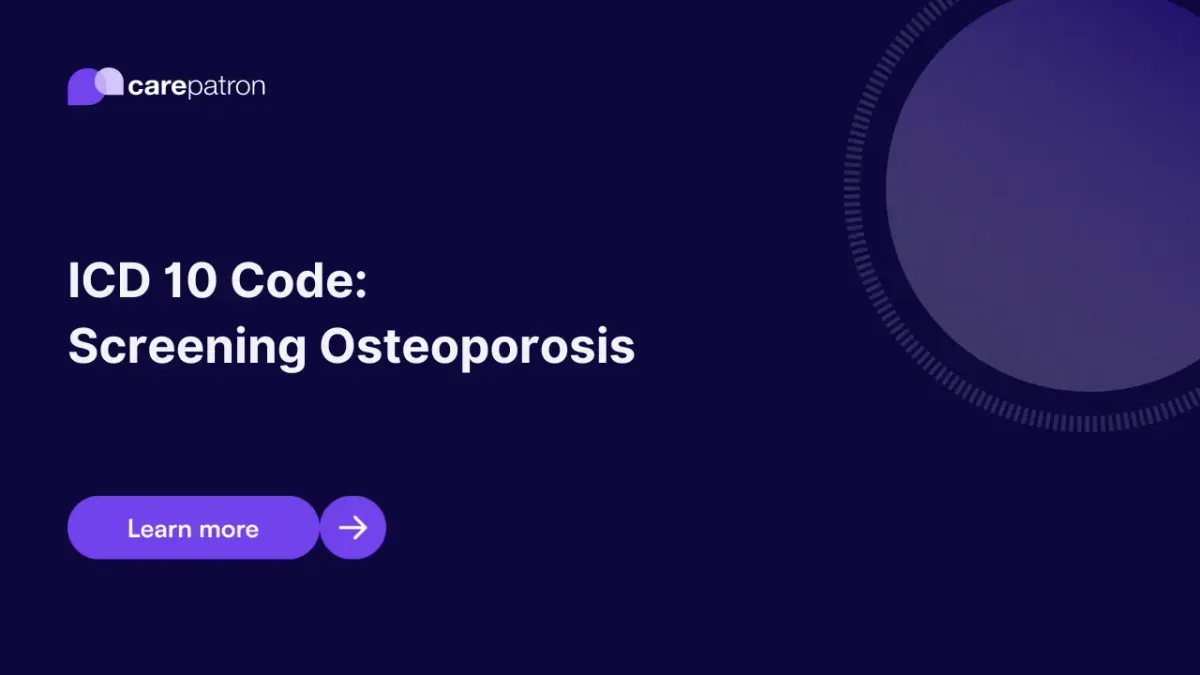
Screening Osteoporosis ICD-10-CM Codes
Read this short guide and learn about the screening osteoporosis ICD codes you can use.
Use Code
Commonly asked questions
During the screening process for osteoporosis, healthcare professionals will note how old the patient is (because the older we get, the more at risk we become of getting osteoporosis), check if the patient has a family history of osteoporosis if they have had a personal account of fractures if they take certain medications (some medicines weaken the bones), and if they have underlying conditions that can affect the bones like rheumatoid arthritis.
Not necessarily. These imaging tests can be conducted again for monitoring purposes to check on a patient’s bone health.
Suppose ever the patient is diagnosed with osteoporosis after taking bone density tests. In that case, treatment will include Bisphosphonates (which are medicines that strengthen the bones) and bone-building drugs (e.g., teriparatide, abaloparatide). They might even recommend a dietary change that includes getting enough calcium and vitamin D.
EHR and practice management software
Get started for free
*No credit card required
Free
$0/usd
Unlimited clients
Telehealth
1GB of storage
Client portal text
Automated billing and online payments
